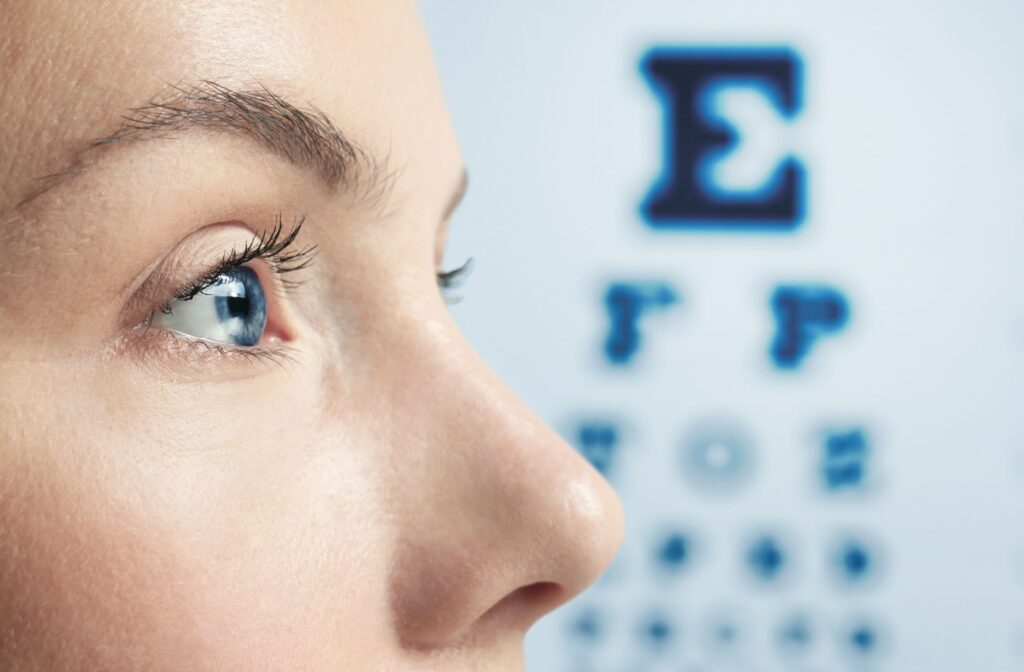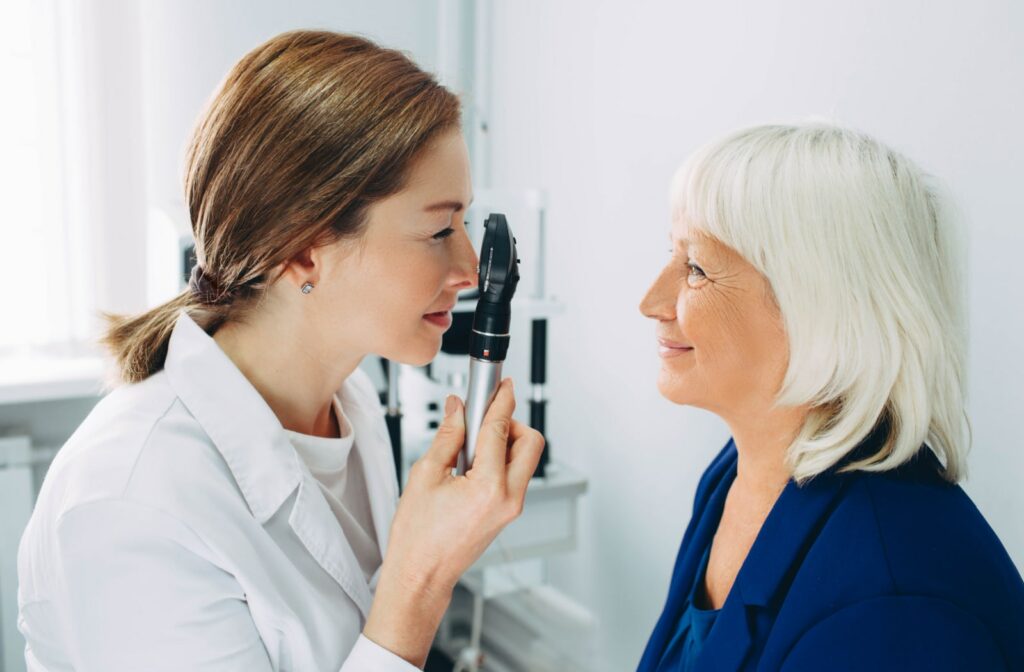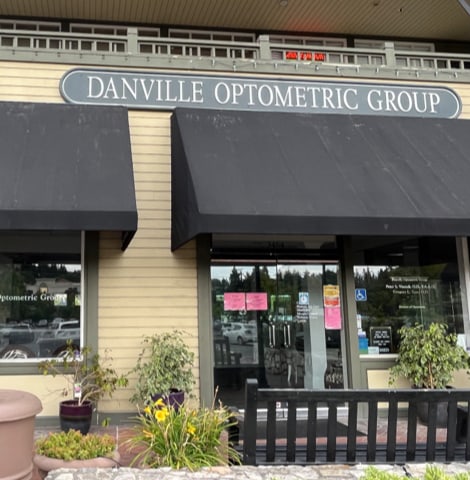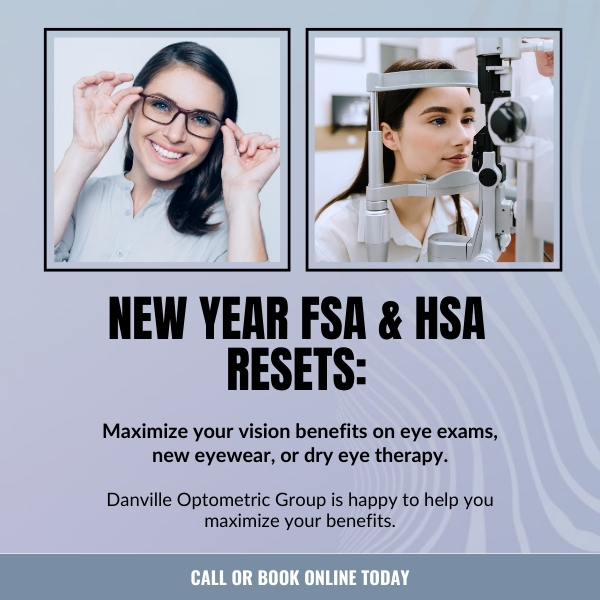Taking care of your vision is an important aspect of overall health, and the key to maintaining good vision health starts with eye exams. Regular eye exams for children and adults and senior eye exams help detect early signs of vision problems and monitor vision changes.
How often you need an eye exam can depend on age, risk factors, and vision changes. School-aged children should have an eye exam every year from 3 to 17 years. Adults should have an eye exam at least every year, and seniors semi-annually. Your eye exam may be good for that time frame; however, your eye doctor may recommend having more frequent eye exams based on your vision health and needs.
The Importance of Regular Eye Exams
Consider eye exams as similar to an annual physical check-up with your family doctor. Not only do eye exams assess how well you see, but they can also catch any signs of trouble before they escalate into something more serious.
Many eye diseases don’t show noticeable signs or symptoms and develop gradually over time. They may advance, be more challenging to treat, and can lead to impaired vision. For this reason, your eye doctor recommends regular eye exams to monitor eye health and maintain vision.
Recommended Frequency for Different Age Ranges
As with healthcare, there is no one-size-fits-all solution to how often you should have an eye exam. The general rule of thumb, as recommended by the American Optometric Association for low-risk individuals, is as follows:
- Infants and toddlers between birth and 24 months should have their first eye exam between 6 and 12 months.
- Preschoolers should have at least one eye exam yearly between the ages of 3 and 5.
- School-age children should have an eye exam at minimum every 12 months or sooner til age 17 years.
- Adults 18 to 39 with no known risk factors or history of eye conditions can have an eye exam every year.
- Adults 40 to 64 should have an eye exam every year.
- Adults 65 and older should have an eye exam annually and usually every 6.0 months.
Influential Factors in Eye Exam Longevity
Several factors can determine how long an eye exam is good for or why your eye doctor may warrant more frequent eye exams. Family history of eye conditions, general health status (particularly those with diabetes or high blood pressure), and lifestyle habits (such as smoking and prolonged screen time) can bump you up into a higher risk category, necessitating more oversight from your eye doctor.
Regular Eye Exams on Prevention and Early Detection
Eye exams not only serve as a vision correction tool; they are also your first line of defense against serious eye diseases like glaucoma, cataracts, diabetic retinopathy, and age-related macular degeneration. Catching these conditions in their early stages can often mean the difference between successful management and irreversible vision loss.

Updating Your Prescription
If you wear corrective lenses, such as eyeglasses or contact lenses, you may need more frequent eye exams to get an updated prescription as your eyes change. Some conditions may require more frequent prescription changes. Regular adjustments to your prescription lenses mean you can experience the world at its sharpest.
Signs That It’s Time for Your Next Eye Exam
Of course, the set schedules are not foolproof, and there are crucial signs your body might give you to indicate an eye exam is needed sooner rather than later. Signs that you need to book an eye exam for preschool and school-aged children can include the following:
- Red, itchy, or watering eyes
- Light sensitivity
- One eye that turns in or out
- Squinting, eye rubbing, or excessive blinking
- Covering or closing one eye
- Short attention span
- Irritability
- Holding objects too close
- Avoiding books and television
- Headaches
- Heald tilting
- Reading and tracking difficulty
- Performing below their potential
Signs that adults and seniors need to book an eye exam can include the following:
- Sudden or persistent blurry vision
- Frequent headaches
- Difficulty seeing in low light
- Poor night vision
- Sensitivity to light
- The appearance of floaters or flashes
- Redness, swelling, or itchiness that doesn’t go away
- Changes in your overall vision clarity and ease
Prioritize Your Vision Health with Eye Exams
Adhering to a regular eye exam schedule is crucial for maintaining healthy vision and catching potential issues early on. But it is also vital to pay attention to vision changes and not wait until your scheduled exam if you notice any troubling symptoms.
By staying proactive and visiting your eye doctor when needed, you contribute to continued eye health and vision preservation. Do not wait for blurry vision to be the messenger; periodic eye exams are your passport to a clear and vibrant world. Book an appointment with Danville Optometric Group today.













